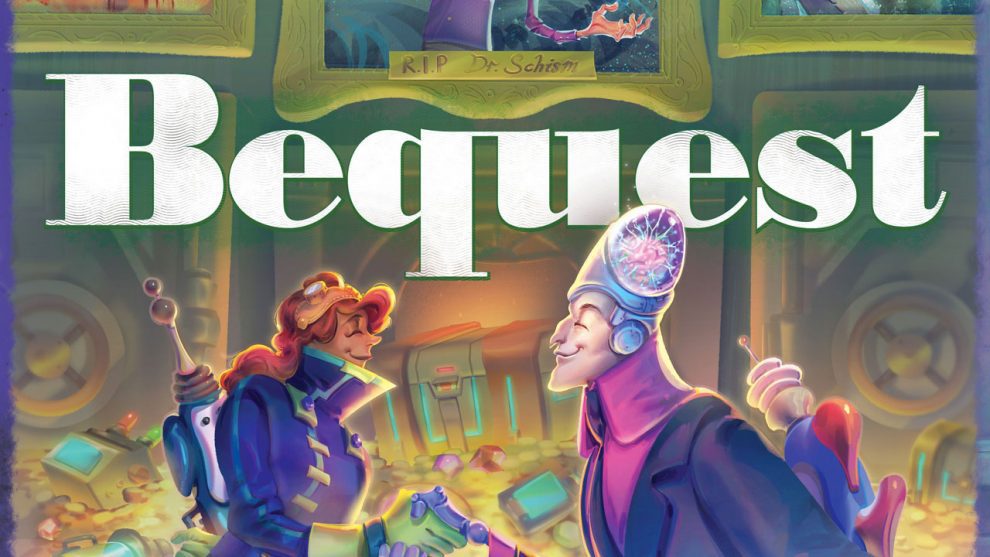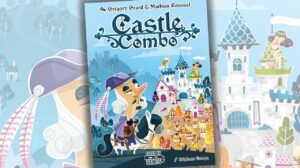Disclosure: Meeple Mountain received a free copy of this product in exchange for an honest, unbiased review. This review is not intended to be an endorsement.
I’ve eaten pizza in most of the places I’ve ever been. I’ve tasted what I would consider to be fantastic pizza. I’ve tasted pizza significantly less than fantastic. There are pizza places that I love for sentimental reasons, and pizza places that I visit exclusively for their unique take on the medium.
I have also ordered the same pizza—with bacon—and the same cheesy breadsticks nearly every Wednesday for the last five years.
While it’s difficult to make amazing pizza, it’s also relatively difficult to make terrible pizza. Apart from the perennial culture war over the legitimacy of Hawaiian pizza, the delightful combo of crust, sauce, cheese, and any number of toppings can please almost anyone. (The recent unexpected advent of cauliflower crust seems to fill any remaining gaps)
Every so often, a game comes along with a nondescript but inviting voice, saying, “Hello, I’m a board game, but you might think of me like a pizza. You’ve seen me before, but on the other hand, you’ve never seen ME before. Pull up a chair.”
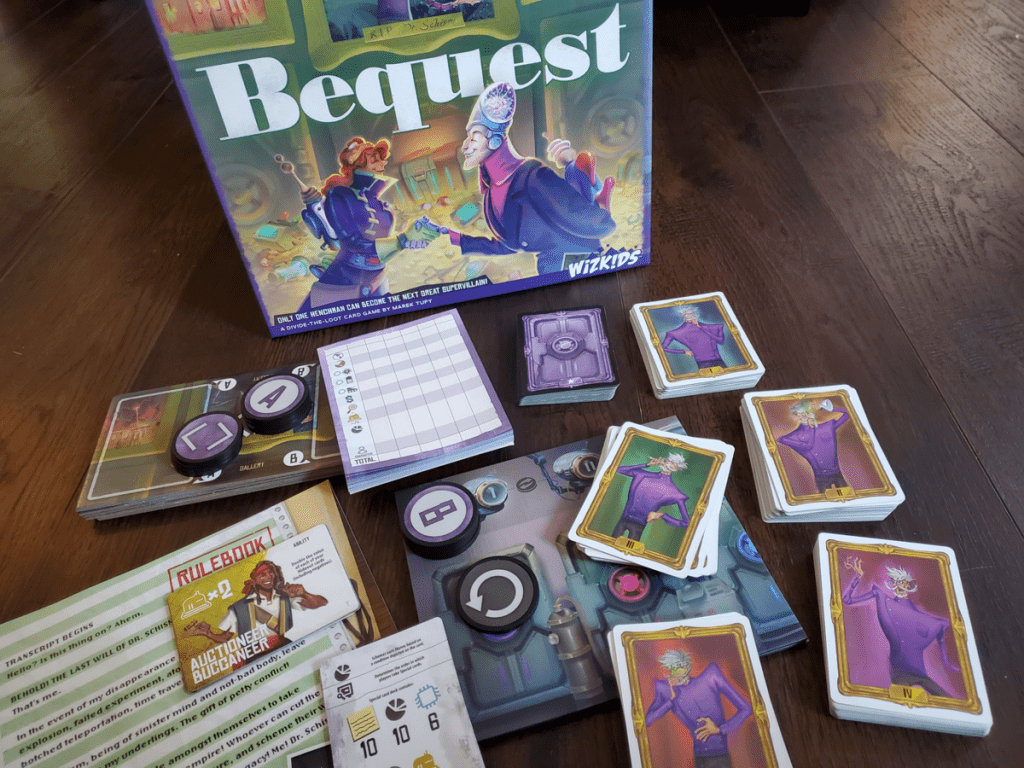
Bequest is a divide-the-loot card game from Marek Tupy (Floor Plan, Jabberwocky) and WizKids. Dr. Schism is dead, and his henchpersons are gathered like starved vultures to divvy up his dastardly fortune. Players assume the role of aspiring baddies as they collect Dr. Schism’s stuff in hopes of rising to the blustery heights of villaindom.
Bequest is a pizza if ever I’ve seen one. Is it amazing? A dud? Or a potential Wednesday habit?
Will this be for pickup or delivery?
Bequest is a card-drafting game that utilizes what is known as the “I cut, you choose” mechanism. In each of five rounds, players are dealt five cards bearing various nefarious goodies. They then present the cards to a neighbor, divided into two piles. The only rule is that both piles must contain at least one card. This is the game’s light-hearted, but occasionally tense, decision space. The other player looks over the piles and casts a face-down chip with their choice of cards. Choices are revealed simultaneously and the players each collect booty from their right and left into a visible tableau.
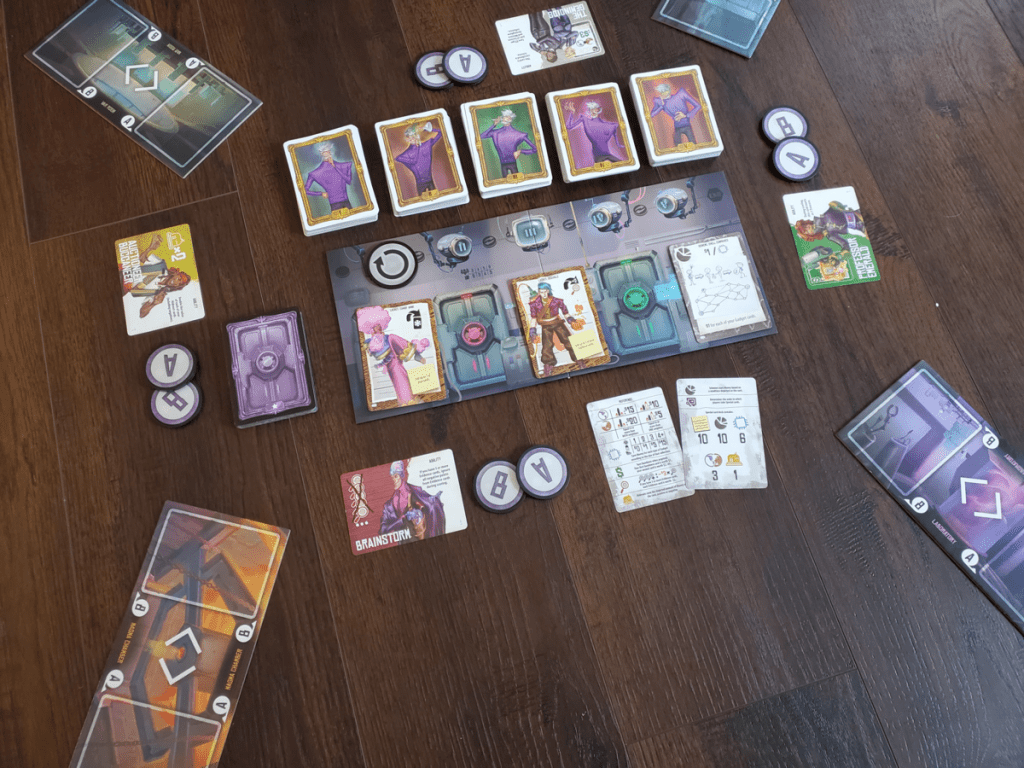
Bequest adds a second special draft to each round from a central display of cards. Within the regular cards are sets of numbered Key cards that grant a player the right to draft a boosted card from the central pool. These cards are visible from the beginning so that every player knows what they might obtain should they successfully draft a Key.
Once the special draft is complete, the next round’s deck is dealt and the process repeats until the game ends and scores are tallied. The villain who best manages to convert their negotiation acumen into cash is the winner.
Can I interest you in one of our specialty pies?
Bequest excels in a number of areas. The physical game is wonderful. WizKids invested in all the right places. The illustration and design team have created and implemented a charming theme. The boards are solid. The decision chips are chunky like a top-notch stack of poker clays. The box may be a bit oversized, but everything fits well. The rule book is concise and helpful. I love a well-built game.
The “I cut, you choose” mechanic is lovely. There is enough tension to make the decisions interesting as you look over your neighbor’s tableau to split the loot, but nowhere near enough to melt your brain or break your heart if the draft goes against you. The inclusion of the Key cards and the draft of those open Specials keep eyes glancing around the table to see who might like the available toppings—I mean, cards.
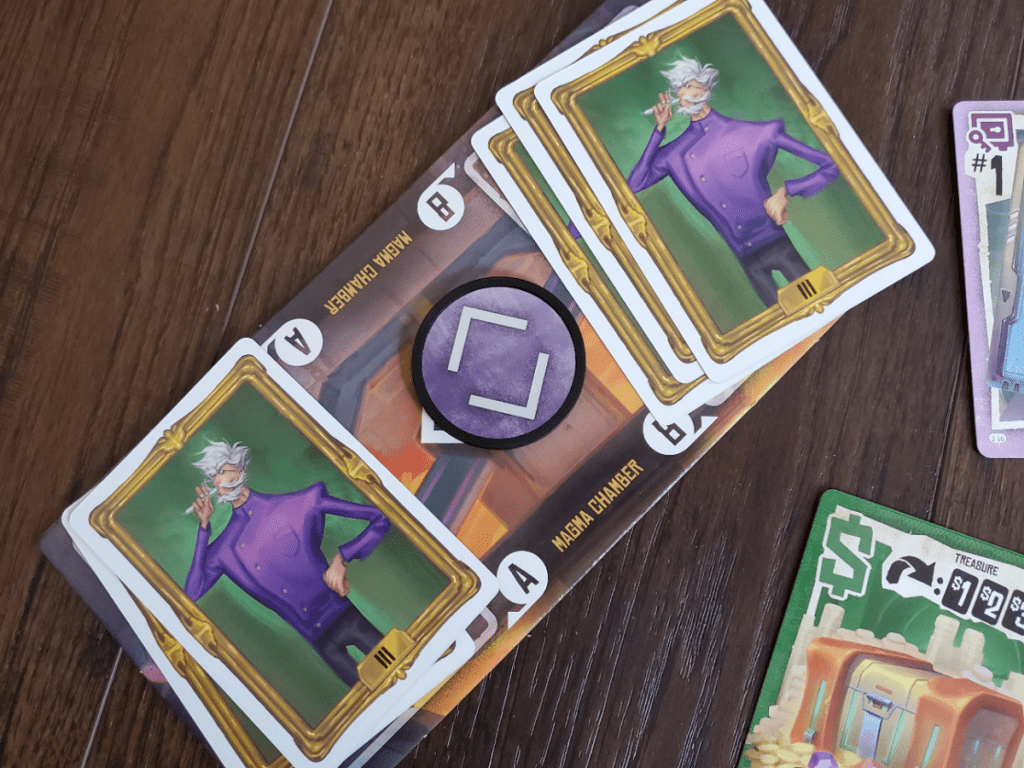
Regarding the pursuit of cards, I cannot say that Bequest breaks any new ground. Global Influence cards are scored by comparing quantities to your neighbors. Gadgets are collected in like sets. Hideout cards store straight cash. Treasures are a combination of found money and sold goods. Evidence cards are harmless to a point, but they become a liability if too many mount against you. Game-end bonuses and one-off abilities flow from the Key card draft. I’ve seen all of this before. But that is only because it is a proven winner.
We’ll have that ready for you in about 30 minutes
Bequest is a Wednesday habit, a delicious bacon pie that I can bring to the table any time for anyone. There is nothing here that screams, “Amazing!!” but neither is there anything here to sour my face and send me running for the door. In fact, WizKids has built what I would consider a rock solid offering in the realm of card drafting games.
Prior to meeting Dr. Schism, I had not played a game that utilized “I cut, you choose.” The mechanic, coupled with the presentation, was the draw for me. It works. As in most drafting games, the bulk of player interaction takes place to the immediate right and left. But Bequest, even at six players, also pulls my eyes across to the other players because of the Key card draft. Predicting another player’s draft in the center might swing the choice to keep or pass on a Key. The light mood and gameplay do not stifle conversation, keeping this one in the realm of a social experience.
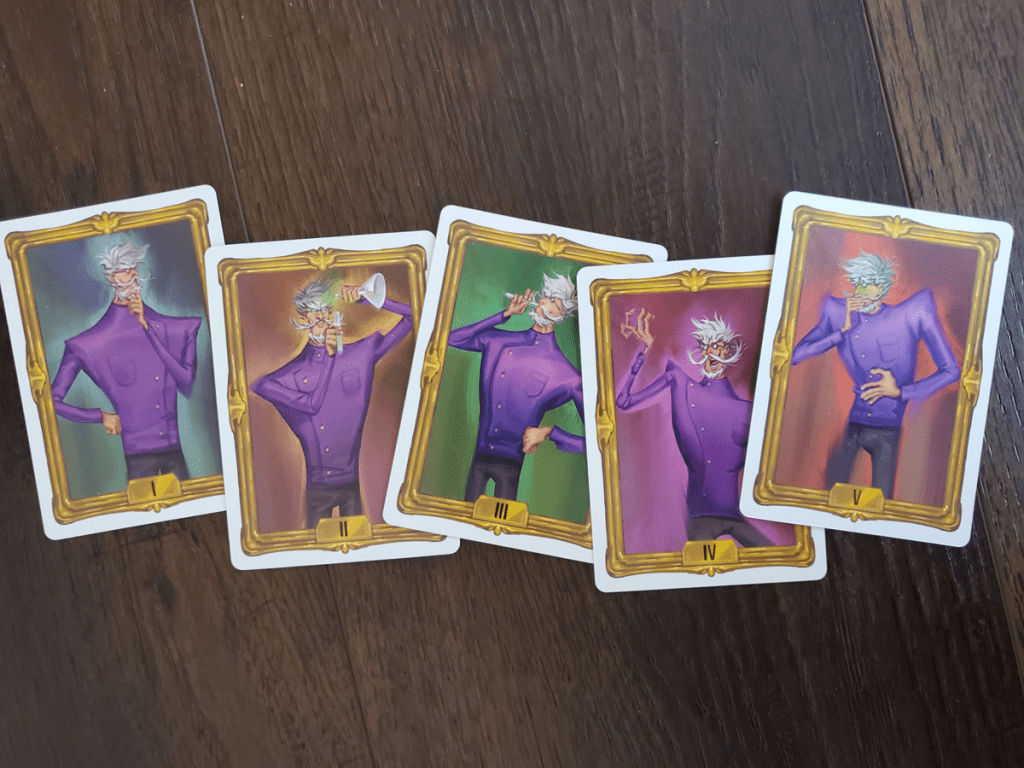
We have played Bequest with every age group. The family adores the quick play, the quirky design, simple scoring, and the slight variability that keeps every game the same, but different. I appreciate the hearty construction and the ease of teaching. I could put this game on the table with anyone.
I’m not going to plan a night of henchman-themed gaming around this title by any means. But it slid immediately into a comfort zone that makes me think we’ll hang onto it for some nights shared with neighbors, and maybe a bacon pie.


